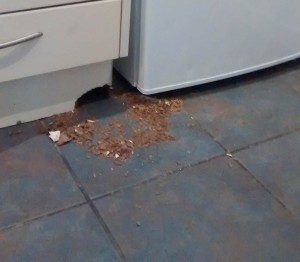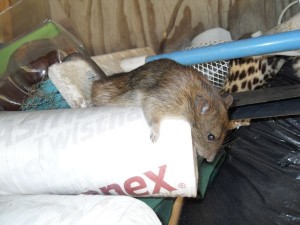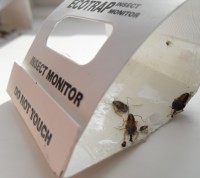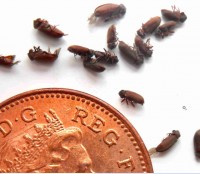How to get rid of a rat infestation from your Home or Business
How do you get rid of an infestation of rats? Norfolk & Norwich Pest Control have the answer and people are usually astonished at how quickly we can remove them. With us, you will normally see them gone in a day or so. That’s all. With over 20 years pest control experience we’ve seen rats in places unimaginable. However, normally they are found in the loft of a home or outbuilding or running around in the garden. If they are in the attic they make quite a noise at night or the early hours of the morning.
Why are rats in my house or garden?
Rats need three things to survive in your property. Food, water and shelter. If your property has one or more of these that’s quite likely why they are there. Other reasons why you may have a rat infestation are nearby building work, gaps or old pipe holes in your house (outside or underneath), ivy or trellis on the outside wall, cracked underground pipes – the list goes on.
How do I Know if I have rats?
Inspection of your property is vital to establish where rats are living. Places to check are the garden, outbuildings or sheds and your loft space. As well as possibly hearing noises in the loft when you are asleep (typically from 10 pm to 4 am), there are other clues. Are you feeding the birds? Does the feed disappear quickly? Are there any burrows in the garden?
You may find rat droppings too. Rat droppings are ¼ to ½ inch in length and are of a capsule shaped, with blunt ends. They are usually a shiny black, but this may vary according to their diets. In a loft space they can be confused with the droppings of squirrels to the non-professional, as they are quite similar. Fresh droppings glisten when fresh that indicates recent rat ingress into buildings and alongside sheds and outbuildings.
An adult rat can weigh between 12 to 16 ounces with a body length of 6-8 inches. Their nose is blunt with small ears and have quite small eyes. Their fur is smooth with variation in colours, although usually black with shades of brown The tail is somewhat shorter than the head and body combined.
Rats live in burrows dug soil outdoors and they can even take over rabbit warrens. The female can lay up to 50-60 young in her two year life span. Rats are nocturnal. If seen during the day it indicates there’s a lot of rats present and a shortage of food availability.
What to look for
Rats will leave footprints in mud and this may indicate how many are present in each situation. Rats also drag their tails, leaving a whip-like mark between their feet tracks. Lightly sprinkled flour or unscented talc can help determine their tracks as they travel within suspected areas.
Rats continually gnaw to wear down their teeth as they continually grow, like human nails. Rats gnaw on wood, but often cause damage by chewing electrical wiring. Rat burrows can be found along pathways and under sheds. Indoors, rats like to enter the attic, particularly from autumn through to late spring.
How do I get rid of rats?
You have a choice of using DIY products or employing a qualified professional. A professional has access to better chemicals and the knowledge how to use them and safely. We not only treat premises in Norfolk, but are contractors to managing agents of high-rise blocks in east London. If we can manage properties there we certainly have the knowledge to help you.
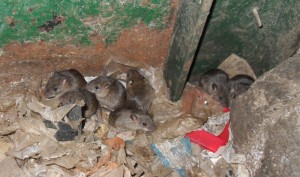
…”In most situations we can remove rats within a few hours”
Norfolk & Norwich Pest Control will be pleased to carry out a full inspection of your home or business and run through with you exactly what we need to do to achieve control and riddance of a rat infestation. As a small business you will find our prices very reasonable and with over 20-years experience offer the correct advice.
Interesting facts about Rats!
- Rats have strong teeth – they are capable of exerting a pressure of 3,000 kilos per square inch ( enough to get through steel plate)
- In theory, a single pair of breeding rats can produce over 600 young in a single year. However, many don’t survive!
- The Black Death plague is now thought to be spread not by rats – but by gerbils in the 1300’s throughout western Europe
- Rats are omnivorous creatures and will at nearly anything. They can be cannibalistic to preserve themselves.
Call us on 01603 905530 to see how we can help you become free of rats.
